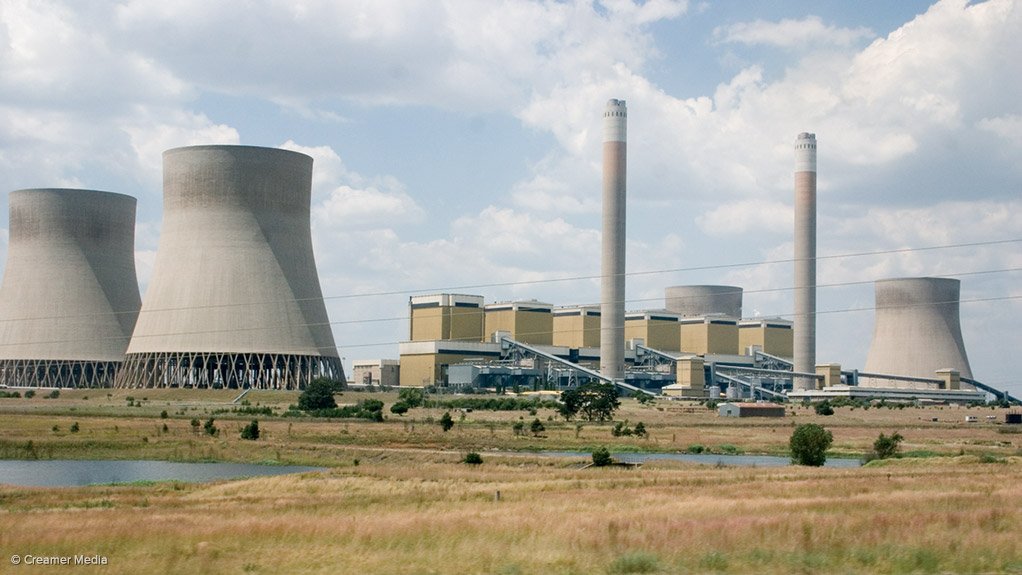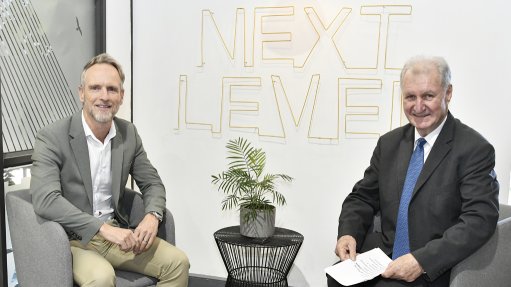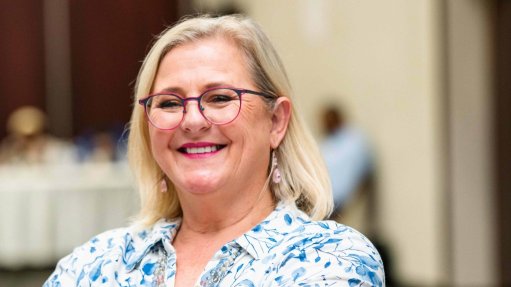Eskom Generation mulling concession models as it seeks to improve coal plant performance
Eskom’s generation business is currently weighing various concession models as the utility assesses ways to improve the performance of its breakdown-prone coal-fired power stations in a context of ongoing financial constraints, as well as restrictions on the raising of new debt.
Eskom Generation engineering GM Thomas Conradie confirmed during an EE Business Intelligence webinar on Thursday that the options ranged from the concessioning of entire plants to private operators, to the concessioning of ringfenced functions within power stations.
He revealed that Eskom had, for some time, been weighing a concession model for the Hendrina power station, in Mpumalanga. He indicated, however, that the utility was increasingly leaning towards a model whereby ringfenced plant areas were either concessioned, or long-term partnerships were concluded with private entities for the operation and maintenance of specific plant components or technologies within power stations.
In February, the National Treasury announced that, as part of a R254-billion debt relief package extended to Eskom, a consortium led by vgbe energy had been appointed to assess the condition of the utility’s coal fleet and to make recommendations on whether some of the power stations should be concessioned to private operators. The assessment is expected to be concluded in July.
However, special adviser to the Minister of Electricity Silas Zimu expressed scepticism about the value of concessions at Eskom, and indicated a preference for allowing the private sector to participate in the repowering of those stations that are scheduled for decommissioning rather than taking over the operations and maintenance of assets that would remain generating for many more years.
“All these power stations that have been built where Eskom has been a contract manager, original equipment manufacturers (OEMs) have been suppliers and engineering, procurement and construction [service providers] and, in some instances, they would have operated and maintained the plants for some time until the handover.
“So private participation has always been there [and] maybe that's the model we have to go back to,” Zimu said during the webinar.
Babcock Ntuthuko Engineering CEO Thava Govender argued that there could be both benefits and potential drawbacks in pursuing a concession solution, but stressed that Eskom definitely needed support from OEMs to improve the performance of a fleet that had become unreliable as a result of insufficient maintenance.
“Eskom needs all the help they can get, and I think we do need to get all the executives of the OEMs together with Eskom, because as a collective I’m sure we can address this crisis of loadshedding and its cascading effect on the economy,” Govender said.
Likewise, ACTOM John Thompson engineering manager Ewert Snyman noted that while his company was already operating and maintaining boilers for other clients, such systems remained core to Eskom, which had developed skills and expertise over many years of operation.
“I think the focus should be on improving performance by including more of the boiler auxiliary equipment in contracts with OEMs so that the key performance indicators can be linked to the performance of the plant.
“Because you cannot ask an OEM to guarantee the performance of the boiler if the company is only maintaining the pressure parts and some of the ancillaries are not included in the contract,” Snyman argued.
Siemens Energy Southern Africa MD Thabo Molekoa added that there was also a growing opportunity for Eskom to improve plant performance by drawing on the expertise that OEMs had in integrating modern diagnostic and engineering services.
“We are talking about a 24/7 operation that needs agility in response to day-to-day and hour-to-hour problems.
“The minute you start becoming a lot more agile, you then are able to mobilise the right skill sets and expertise and you are able to respond quicker while adhering to quality and best practices,” Molekoa added.
Article Enquiry
Email Article
Save Article
Feedback
To advertise email advertising@creamermedia.co.za or click here
Comments
Press Office
Announcements
What's On
Subscribe to improve your user experience...
Option 1 (equivalent of R125 a month):
Receive a weekly copy of Creamer Media's Engineering News & Mining Weekly magazine
(print copy for those in South Africa and e-magazine for those outside of South Africa)
Receive daily email newsletters
Access to full search results
Access archive of magazine back copies
Access to Projects in Progress
Access to ONE Research Report of your choice in PDF format
Option 2 (equivalent of R375 a month):
All benefits from Option 1
PLUS
Access to Creamer Media's Research Channel Africa for ALL Research Reports, in PDF format, on various industrial and mining sectors
including Electricity; Water; Energy Transition; Hydrogen; Roads, Rail and Ports; Coal; Gold; Platinum; Battery Metals; etc.
Already a subscriber?
Forgotten your password?
Receive weekly copy of Creamer Media's Engineering News & Mining Weekly magazine (print copy for those in South Africa and e-magazine for those outside of South Africa)
➕
Recieve daily email newsletters
➕
Access to full search results
➕
Access archive of magazine back copies
➕
Access to Projects in Progress
➕
Access to ONE Research Report of your choice in PDF format
RESEARCH CHANNEL AFRICA
R4500 (equivalent of R375 a month)
SUBSCRIBEAll benefits from Option 1
➕
Access to Creamer Media's Research Channel Africa for ALL Research Reports on various industrial and mining sectors, in PDF format, including on:
Electricity
➕
Water
➕
Energy Transition
➕
Hydrogen
➕
Roads, Rail and Ports
➕
Coal
➕
Gold
➕
Platinum
➕
Battery Metals
➕
etc.
Receive all benefits from Option 1 or Option 2 delivered to numerous people at your company
➕
Multiple User names and Passwords for simultaneous log-ins
➕
Intranet integration access to all in your organisation





















